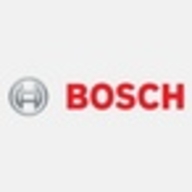

Appian and Bosch inubit are competing in the business process management category. Appian seems to have the upper hand with its simpler learning curve and lower upfront costs, while Bosch inubit stands out with robust functionality and feature depth.
Features: Appian includes low-code development, dynamic automation capabilities, and seamless integration options. Bosch inubit provides complex process orchestration, scalability for large operations, and extensive connectivity to enterprise systems.
Ease of Deployment and Customer Service: Appian offers rapid deployment and a supportive service structure, making it suitable for businesses needing quick implementation. Bosch inubit, though more elaborate in deployment, offers high customization levels and thorough integration with existing infrastructures.
Pricing and ROI: Appian has lower setup costs, resulting in faster ROI through reduced initial investment and maintenance expenses. Bosch inubit requires higher setup costs but promises long-term ROI through enhanced process efficiency and scalability.

Appian is a unified low-code platform and solution used by businesses to build enterprise applications and workflows. This product adapts to the needs of clients and the technologies they are already using to combine their data in a single workflow and maximize resources. The platform has four main components through which it transforms the work process for companies of various sizes. They are:
Appian is utilized across a diverse set of industries, including automotive and manufacturing, energy and utilities, education, financial services, telecom and media, transportation, retail, insurance, healthcare, and life sciences. The most frequent use cases of Appian are customer journey, governance, risk and compliance, operational efficiency, supply chain, distributed order management, and environmental, social, and governance (ESG) management.
Appian Features
Appian has various features that allow users to create solutions for their businesses. These features can be separated into a few groups according to function, including automation, low-code application development, and integrations and data. Some of the most frequently used features of Appian include:
Appian Benefits
The benefits of using Appian include:
Reviews from Real Users
A practice leader - digital process automation at a computer software company values Appian highly because the product is easy to develop, low-code, and has a good user interface.
Alan G., an advisory board member at Codecon VR, Appian offers a clear application life cycle, easy to learn documentation, and comes with a fundamentals course.
We monitor all Business Process Management (BPM) reviews to prevent fraudulent reviews and keep review quality high. We do not post reviews by company employees or direct competitors. We validate each review for authenticity via cross-reference with LinkedIn, and personal follow-up with the reviewer when necessary.